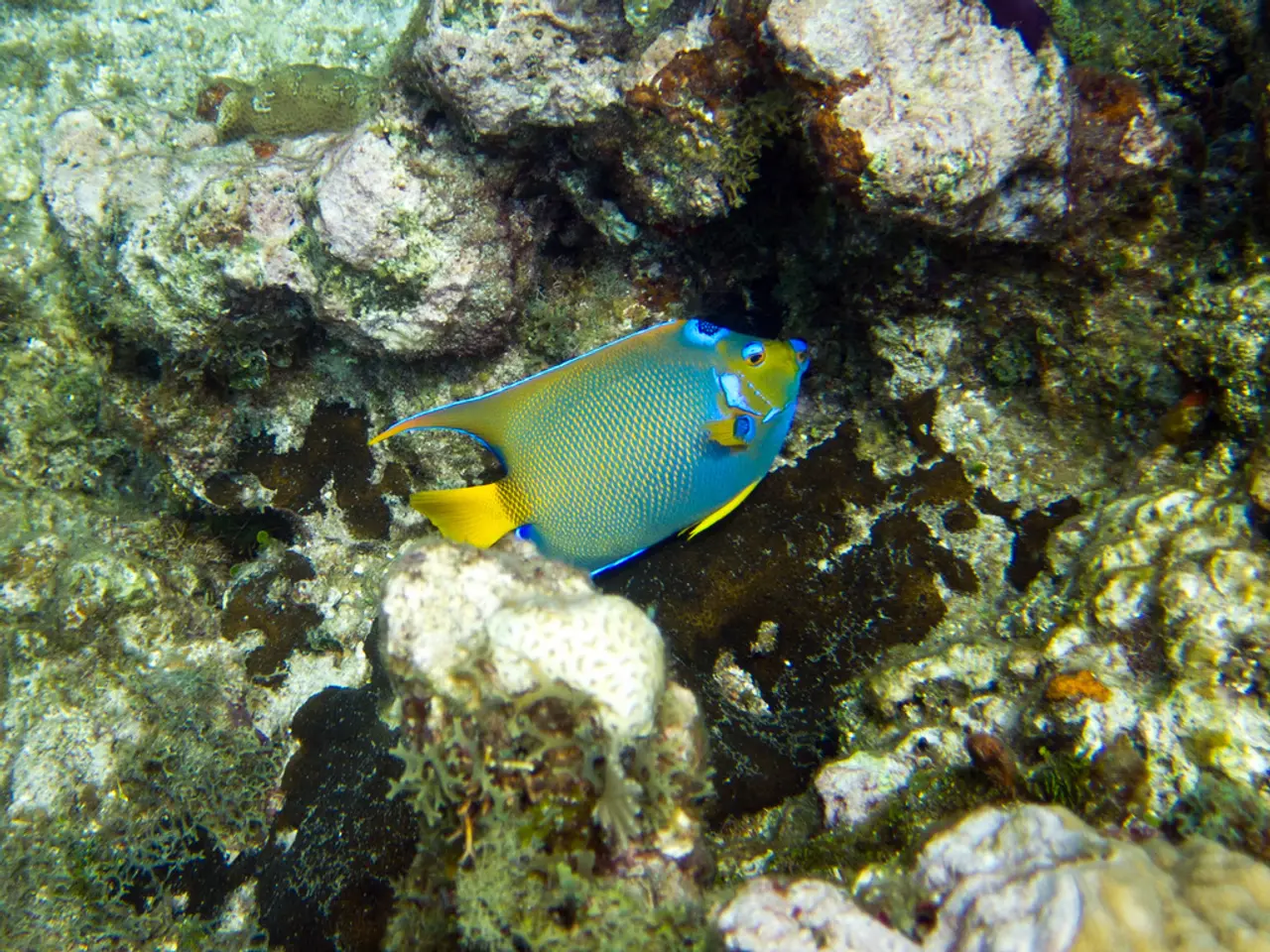Island of Kubbar flourishes as an eco-tourism jewel in the face of warming climate
================================================================================
Kubbar Island, a protected marine area off the coast of Kuwait, is swiftly emerging as an eco-tourism destination. The island offers a myriad of sustainable initiatives that encourage visitors to enjoy its natural beauty, while prioritising conservation efforts.
The island's stunning coral reefs, teeming with marine life, are a popular draw for snorkelling and underwater photography enthusiasts. Birdwatching is another popular activity, with Kubbar being a vital stopover for migratory species. The unique desert flora and fauna of the island provide a fascinating insight into its ecosystem.
Kubbar Island boasts designated camping areas, hiking trails, historical ruins, secluded beaches, and breathtaking sunset views. These attractions foster low-impact nature appreciation, aligning with the conservation goals of the island.
However, the rise in visitor interest poses challenges for maintaining the fragile marine ecosystem and local wildlife. Kubbar Island serves as a crucial stopover for migratory birds and hosts vibrant coral reefs, both sensitive to human disturbance.
Environmental regulations mandate vessels and visitors to maintain a safe distance from nearby islands to minimise impact, which may complicate access and tourism development. Climate-related challenges, such as rising temperatures, also pose threats to the ecosystem and the viability of eco-tourism.
Despite these challenges, Kubbar Island offers significant benefits to the local economy and environment. It enhances employment opportunities, supports small businesses, and fosters environmental awareness.
Dr. Abdullah Al-Zaidan, an expert in the field, emphasises the importance of ensuring that hosting visitors does not harm the environment on Kubbar Island. Jenan Behzad, another expert, highlights that small islands like Kubbar are key to ecotourism and a sustainable economy.
Experts recommend conducting visitor capacity studies to avoid overcrowding and recommend marine monitoring via GIS and remote sensing for Kubbar Island. Marine anchor zones are suggested to protect coral reefs from boat damage, and stronger enforcement of environmental regulations is recommended.
In conclusion, Kubbar Island presents a unique opportunity for balancing growth with conservation in Kuwait's environmental and tourism sectors. By focusing on sustainable marine and desert nature experiences, the island can continue to thrive as an eco-tourism destination while preserving its ecological integrity.
Visitors to Kubbar Island can partake in environmental-science activities such as birdwatching and snorkeling, contributing to a shift in their lifestyle that prioritizes sustainable tourism options. To ensure the conservation of Kubbar's sensitive marine ecosystem and vibrant coral reefs, experts recommend implementing strategies like carrying out visitor capacity studies, establishing marine anchor zones, and enforcing environmental regulations more stringently, thus promoting a sustainable travel approach for eco-tourism growth.




